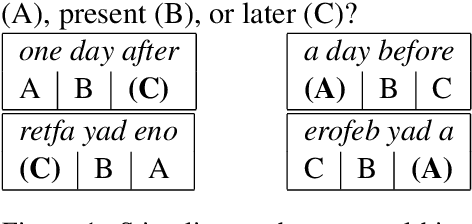Language Models Understand Us, Poorly
Paper and Code
Oct 19, 2022
Some claim language models understand us. Others won't hear it. To clarify, I investigate three views of human language understanding: as-mapping, as-reliability and as-representation. I argue that while behavioral reliability is necessary for understanding, internal representations are sufficient; they climb the right hill. I review state-of-the-art language and multi-modal models: they are pragmatically challenged by under-specification of form. I question the Scaling Paradigm: limits on resources may prohibit scaled-up models from approaching understanding. Last, I describe how as-representation advances a science of understanding. We need work which probes model internals, adds more of human language, and measures what models can learn.
 Add to Chrome
Add to Chrome Add to Firefox
Add to Firefox Add to Edge
Add to Edge